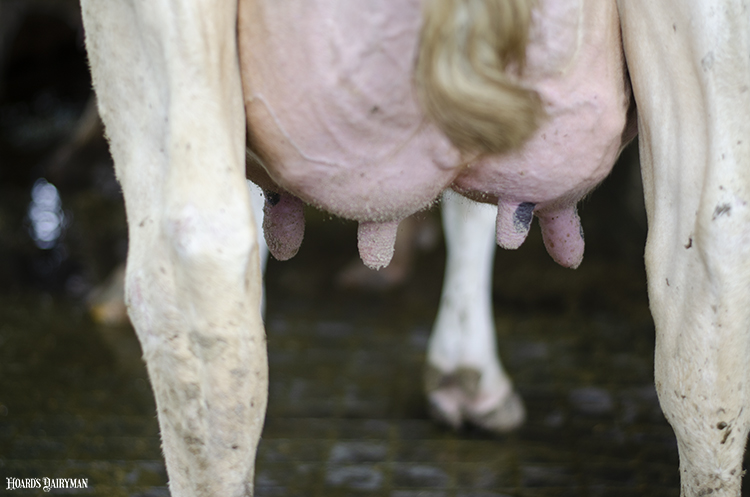
The reason stressed cows produce less milk appears to be rooted in lactose synthesis, which is limited when cows are challenged with a stressor, describe researchers from the University of California, Davis and the University of Sydney in a new paper published in the journal Frontiers in Genetics.
Though cows may become stressed due to a variety of environmental, metabolic, reproductive, or other reasons, there is little understanding of how stress physiologically translates into reduced milk production, the authors said. To investigate that question, they challenged cows with a direct stressor by administering a single dose of dexamethasone, which is a potent form of the stress hormone glucocorticoid. Then, they monitored production and blood glucose.
The dexamethasone treatment reduced milk production by about half, reported the group led by Anna Sadovnikova. However, protein and fat content remained the same or rose, while lactose content experienced a significant drop.
The researchers took biopsies of udder tissue from each quarter before and after the treatment to study the udder’s response to stress and then profiled the approximately 20,000 genes that are typically expressed during milk synthesis. That analysis provided clear insight that several genes critical for lactose synthesis were turned down with the challenge then were restored after the dexamethasone effect passed.
“Central to these was a gene coding for the protein alpha-lactalbumin, which is the rate-limiting component for how lactose is made from glucose and galactose,” wrote the researchers in a Golden State Dairy Newsletter. On the other hand, genes for pathways involving milkfat and protein synthesis were not affected, so it can be concluded that lactose specifically was suppressed by the udder in response to the stressor.
The group believes this might be because the body directs glucose, a lactose building block, to immune response during a stress event instead of the udder for milk production. A cow will use about 7 pounds of glucose per day to produce milk, the scientists said. In contrast, an immune response for mastitis requires about 2.2 pounds of blood glucose.
We know that reducing stressors will benefit animal well-being and productivity, and now this research more clearly indicates why that is the case. Allowing cows to be stressed forces their body to choose between allocating resources like glucose to either production or maintenance of their health. Don’t make your cows choose.








